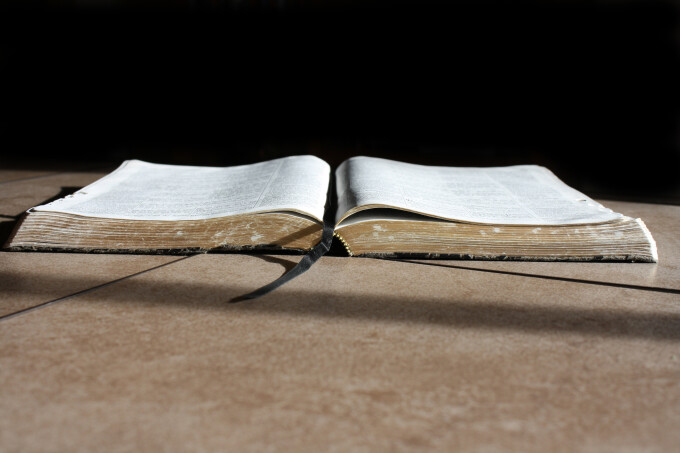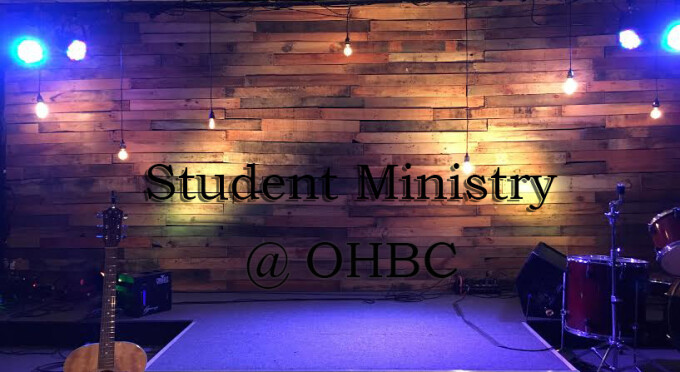Spiritual Development - July

“Small Decision Matter: Discernment for Everyday Life” by Ed Welch
Life is in the details. Listen to C.S. Lewis describe how our small day-to-day decisions matter. “Good and evil both increase at compound interest. That is why the decisions you and I make every day are of such infinite importance. The smallest good act today is the capture of a strategic point from which, a few months later, you may be able to go on to victories you never dreamed of. An apparently trivial indulgence in lust or anger today is the loss of a ridge or railway line or bridgehead from which the enemy may launch an attack otherwise impossible.”
While we fret the big decisions – jobs, family changes, retirement – the action is in the endless small ones. This morning, I woke up and had to decide between exercise and a leisurely cup of coffee, I chose coffee. Then other decisions followed. Is it necessary to take a shower and be rushed, or should I rely on the room deodorizer in my office? Do I clean up some of my morning mess, or should I tell my wife I will clean up when I get home, which I probably won’t? And what about reading Scripture? Where will that fit into my day? Ugh, I can hear the refrain about the value of morning devotions in my head. As I make the short drive to work, do I tolerate a little grumbling because I had to stop for a long, slow train, or do I confess my grumbling?
I am only an hour into my day, still on autopilot, and I have yet to get online – then the decisions will really come fast and furious. Hundreds of other judgments and moments of discernment are to come before lunch. Though I am barely aware of them, their cumulative effect is what constitutes my personal character – they are me – and the judgments will affect many others.
To be human is to make judgments and choose one way over another. The story of Eden announced this essential feature of our humanity when the Lord taught us to be discerning about how to live near one particular tree – the tree of the knowledge of good and evil. So it began. This way or that way? Right in God’s eyes or right in our own eyes? Two paths. One is self-destructive; one is filled with life. Our lives are now brimming with daily judgements of ourselves and our world. These judgments determine our course and carry eternal consequences.
The distinctions we make between good and evil are paramount. Scripture pleads with us to be alert to these decision points. And then there are micro distinctions we must make between what is good and what is better, what is bad and what is worse. In the best of times, all of these decision points have their challenges. But add human desire, and the once obvious distinctions between good and evil become blurred or even overturned, as evil is judged as good. Who among us can walk in wisdom?
Yet this is the age when Jesus, the second Adam, was tempted in the wilderness and rightly discerned the difference between good and evil. Now, as we trust in our champion and his power, we can come alive to the seemingly incomprehensible and impossible task of careful discernment.
The apostle Paul warned us, “Look carefully then how you walk, not as unwise but as wise making the best use of the time, because the days are evil” (Eph 5:15-16). When we look carefully, two paths always come into view. We want to be skillful enough to see the wise path of life and then take it.
So I slow down and begin where I am. I ask for grace to look carefully, to discern wisely. I remember the common warning signs that inevitably precede my foolishness, and I set some small goals for the evening.
Warning signs to keep in mind
1. Careful decisions take work. I can be lazy. Wake up.
2. Watch for hints of grumbling or defensiveness. These are sure signs that my commitment to godly discernment has diminished.
Good small steps
1. I want to be patient and kind to the person in front of me. Be a servant. I don’t have to be right.
2. I will prepare my thoughts for my wife on the ride home. What were the high points of my day? The challenges?
Lord God, I want to be more awake. I want to see what is good; I want to see what is empty and lifeless. I want to be discerning in the details. Please, today, now, give grace so I can walk carefully.

